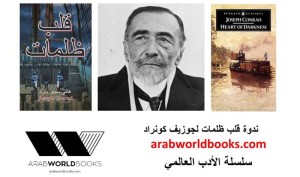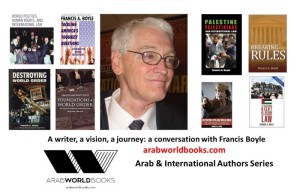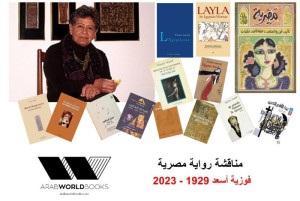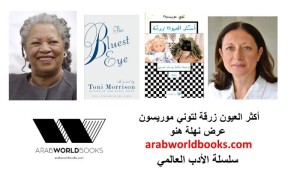Source:SIS Egypt
A knight of wisdom and positive attitude with his decided scientific approach, his critical creations in the realm of intellect and literature has managed to give a great momentum to Arab culture and civilization, along with enlightening the Arab mind.
Special image
Zaki Naguib Mahmoud had a long journey in the kingdoms of philosophy, literature, criticism, logic, translation & culture; that tanged his character by a very special image. He wrote his biography, which is deemed to be one of the greatest in the history of Arabic literature, to depict his scientific and literary life in such unprecedented candid impartiality and absolute frankness.
Mastering disciplines
Along his life, he added a cluster of the most outstanding pieces; 51 books, hundreds of articles and discourses in many spheres.
Mastering translation, he succeeded in selecting what enriched the Arab mentality. He was, also, a great thrust, having modern Arab and Egyptian culture thrive through his creations, pilot philosophy and all offices he assumed.
Touchy pencil
Zaki Naguib Mahmoud, a man of the full sense of the word, has managed to leave his eternal fingerprint through his touchy pencil. Breathing his last, he left behind invaluable heritage and matchless intellectual bounty.
Early beginnings
Born on February 1st, 1905 in "Meat Al-Kholi Abdullah" village on Nile Bank between Al-Mansoura and Damietta, Zaki was fostered within large-member family with different shares of education but all civil servants.
Accompanying his father who was working as a public officer in the Sudanese government - the headquarters then was in Cairo - Zaki moved to Cairo as he joined Sultan Hussein School.
In 1914 his family moved to Khartoum as his father was assigned in another post in the Sudan, so he joined preliminary Ghordone school on Jan. 1915 till he completed his high school study.
Afterwards, Zaki flew in 1936 to UK on a summer-time mission in his capacity as an English teacher. Then, he was assigned to work at the public culture department, but just for few months, to travel once again on a mission to UK, as he joined London university till he attained his honorary Bachelor degree of first order in Philosophy in 1945.
This degree he acquired, however, permits holder to begin work with view to attaining the Ph.D. So he did it in 1947 at the College of the King, London University.
Home sick
Yearning home, he came back to Egypt to join philosophy department at the college of arts, Cairo University. Zaki was commissioned to undertake the supervision of the Culture magazine which was being published by the committee of authoring, translation and editing for three years straight as of 1948 till 1951. He was seconded afterwards to work in the Ministry of National Guidance which was first founded following the July 23 Revolution.
As of 1953 to 1954, Zaki went to the USA, in his capacity as a visiting professor, as he paid several visits to Polman University and Colombia University in Washington. Following this visit he was appointed Cultural Counselor of the Egyptian Embassy in Washington.
Multi-activities
In 1956 he got married to Dr. Monira Hilmi, professor of psychology in Ein Shams University, then he was selected to represent both philosophy and poetry committees of the supreme council for literature, social science and arts care. In addition, he was appointed member of more than a cultural committee, & he kept membership to committees, which combined philosophy, literature together with arts for nearly 10 years.
In 1965 Mahmoud managed to establish - under the Ministry of Culture - the "Contemporary Intellect" magazine to which he dedicated himself as Editor-in- Chief for four years. Not to mention, he tailored the policy of such magazine ever since it came to existence to taking no side while dealing with politics, as its first aim was to concentrate on what is related to the intellect, irrespective of politics that emerged from such aspects.
Returning home after five years straight, as of 1968 to 1973, he spent in Kuwait, Zaki resumed his giving at Cairo University till receiving an invitation to join Al-Ahram newspaper in 1973; a chance which he deemed good opportunity to express his panoramic vision through his writings. He pursued writing, however, till 1990.
As a matter of fact, Mahmoud has assumed several and numerous offices such as a member in the supreme culture council, national council of information and culture, national specialized councils and the national council of education and scientific research.
In addition, he took part in several conferences held in both Arab and European countries and he was invited to deliver various lectures around the world too many times. His last visit was to Qatar in which he delivered his last lecture which was widely acclaimed.
Intellectual, cultural & literary
Mahmoud's life is deemed to be a unique and distinguished model via which he managed to pull through the continuing intellectual struggle. The literary attempts of Zaki were first launched before graduation, as he embarked on writing while still a student through correspondence with many newspapers. He wrote diversified articles - in different spheres - which were published in "Politics Weekly" magazine and "Culture" magazine.
Positivism
There is no doubt that philosophy, his major, was a great intellectual juncture and sensitive turning point in his life, hence when he came back home after years of preparing for Ph.D. in London his orientation has been crystallized in two trends.
First, was the impression of the contemporary European culture spirit; second was the calling for logical positivism, the philosophy which joins all concerns in the field of scientific thinking together with each other.
Zaki, however, deems the philosophical thinking , whatever it was, as the key to conceive and understand the existing conceptions in people's life, so he authored several books in this respect entitled "Towards Scientific Philosophy."
Purity vs. modernity
The issue of purity and modernity is one of the most important issues that he expatiated in talking about, as Zaki deems that problems of the so-called the Third World or the under-developed countries, resides in cultural backwardness and the only way to combat it, is to merge the old and the new, keeping our heritage abreast with new conceptions.
As it became clear then that he visualized purity as the grassroots of homeland, while the modernity as broadmindedness. Accordingly, Mahmoud affirmed that the nation could harmonize between both purity and modernity, keeping at the same time distinguished character and impartial orientation towards heritage and roots.
He decided not to be subordinate but independent, so he conducted his own way while playing his criticism role in enriching the intellectual realm, battling alone with his pencil several severe strifes.
Closest friend
One of his closest friends was the man of letters Abbas Mahmoud Al-Akad with whom he found himself, also Akad was fascinated with his way of arguing and convincing and his frankness as well.
He had touched on several topics in different domains such as arts, politics, freedom but square and taking no sides as he never committed himself to a specific party which created apt climate to him while criticizing or analyzing any question on both political and cultural scenes.
The human being
He is characterized by sensitivity, thoughtfulness and widemindedness. He was a unique teacher who knew very much how to draw and capture the attention of his students via clear thoughts and vivid feelings along with profound effect.
Being so polite and having kind heart paved the way before him to be more reachable, as he managed to touch many to the roots.
Contributions
There is no doubt, that Dr. Zaki's contributions had, to a great measure, participated in developing both Arab and Egyptian modern culture. The decisive proofs for that are his writings which were strong momentum and fundamental pillar in improving such progress. His writing came - over 60 years of giving - to nearly 20,000 pages in 51 books of different domains. What a prolific writer!
Writings of Dr. Zaki were diversified, flourishing Arab mentality to a new and distinguished way via which he added a lot to people around. He wrote in philosophy "The History of Modern Philosophy" in cooperation with Ahmed Amin in 1935, "The Literature Story in the World" which was issued in 4 parts in 1941 and 1948, "The Arts of Literature" in 1947, "The Positivism" in 1951, "Revolution on the Doors" in 1956, "Knowledge Theory" in 1955, "Thoughts in The New World" in 1956, ?owards Scientific Philosophy" in 1958, "The Land and the Egyptians" issued in English in 1959, "Principles of Scientific Thinking" in 1977, along with a cluster of masterpieces and terrific issues such as "Culture and Age", "Renewing the Arab Mentality", "Islamic Vision".
As for translation field, he accomplished during his tour with translation great pieces such as "The Rich and the Poor", adding to his credit hundreds of articles. He also translated scores of books that were published by the Frankline Institution for which he was counselor in Egypt.
Egyptian writes about Egypt
Egypt was forever in his innermost , sentiments and his mind as well, fascinated with her love. And that could simply explain why he reached that status in this sensitive sphere.
Acknowledging the role he assumed over long journey with meditation, Zaki was awarded several times, as he received the distinction literary award in 1939, the State incentive award on his book "Towards Scientific Philosophy", decoration of arts and literature of the first order in 1960, award of appreciation in literature in 1975, decoration of the Republic of the first class in 1975, award of appreciation on Arab culture extended by the Arab League to become the first Egyptian who received this kind of award.
Not to mention, he was awarded the honourary Ph.D. by the American University in 1985 and the necklass of Sultan Al-Eweis of the U.A.E. in 1991, the award which is only exclusive to those who are distinguished figures in the Arab world. Mahmoud, also, received the Cairo International Book Fair award in 1992 on his book "Harvest of the Years" as the best book in literature.
Dr. Zaki, you left....Still your heritage is here around, fragrant and breezy.
Zaki breathed his last in 1993 after 88 years of giving during which he gave Arab and Egyptian generations the texture of his human and intellectual tour.
Zaki Naguib Mahmoud A Tour of Wisdom and Knowledge
Upcoming Events

Joseph Conrad's Heart of Darkness Discussion
April 27, 2024
Join us for a special discussion of Joseph Conrad&...

A writer, a vision, a journey: a conversation with Francis Boyle
February 24, 2024
This event took place on 24 February 2024 Yo...

Discussion of Fawzia Assaad’s An Egyptian Woman
November 25, 2023
In celebration of the life and outstanding achieve...

Toni Morrison's The Bluest Eye, A Presentation and Discussion
October 28, 2023
This presentation and discussion of Toni Morrison&...
